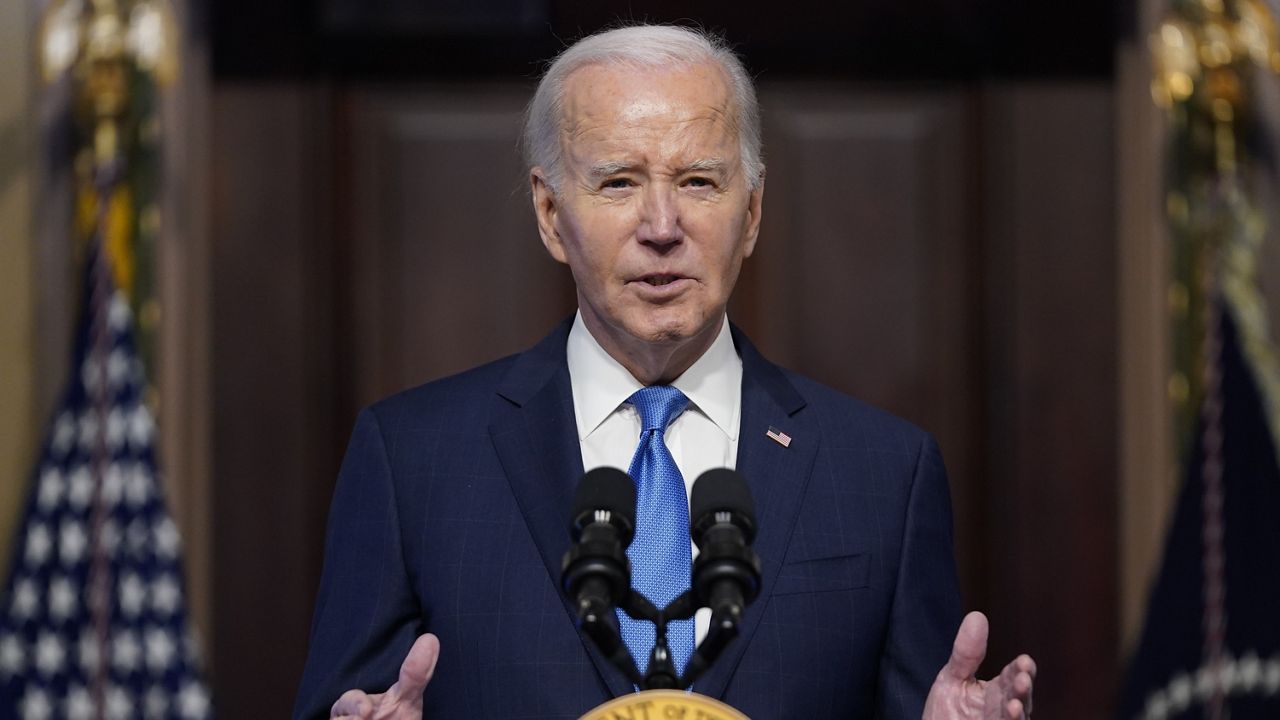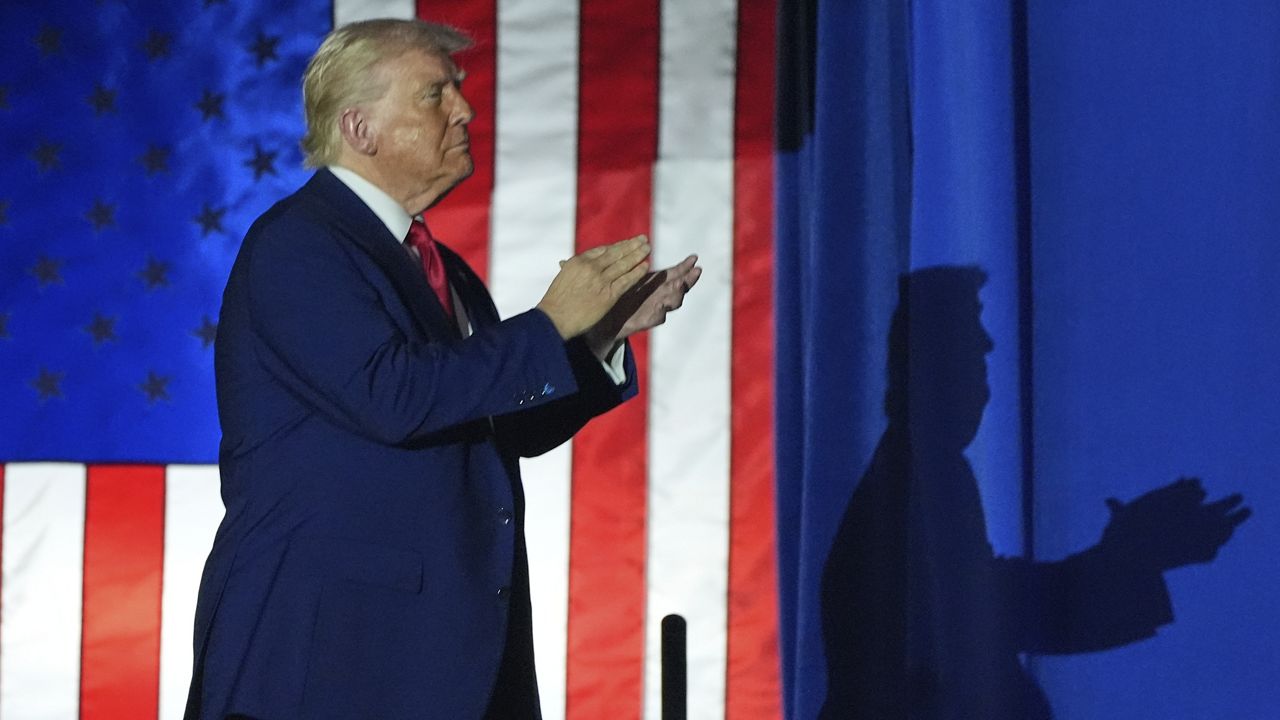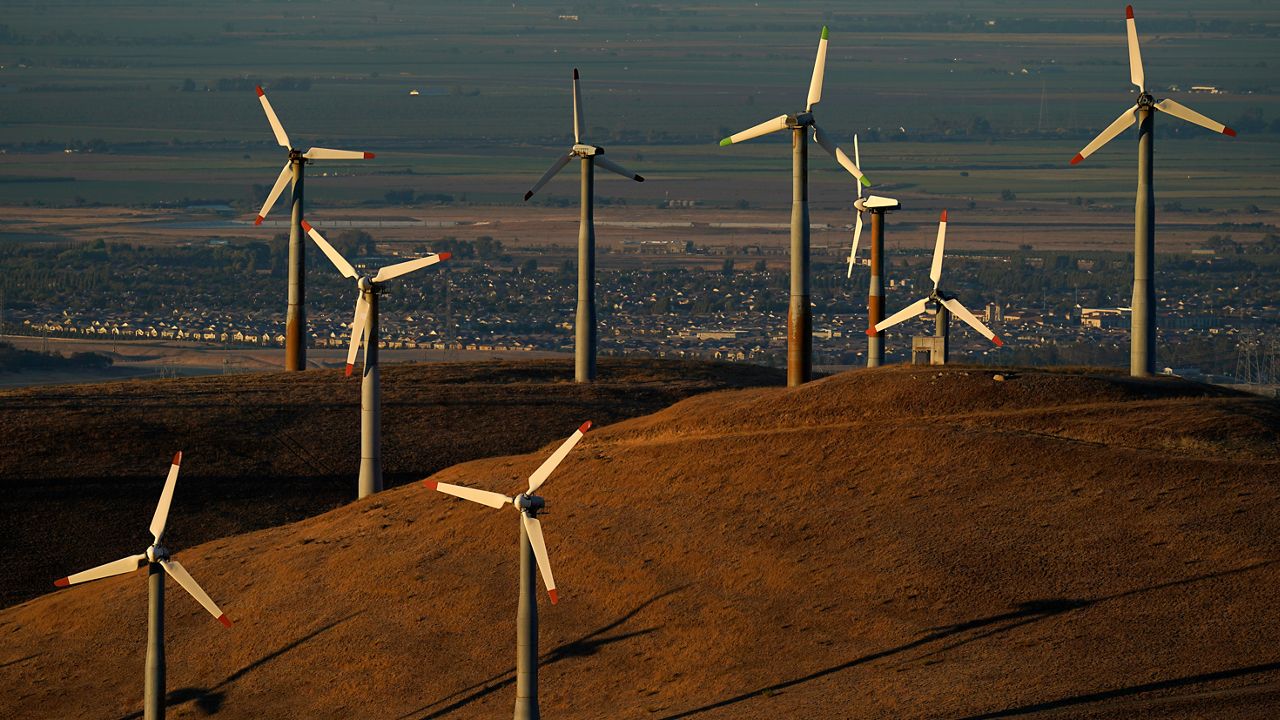The Biden administration has doled out nearly $454 billion from the Bipartisan Infrastructure Law to over 56,000 projects around the country since the passage of the $1 trillion dollar bill about two and a half years ago.
The White House made the announcement on Monday to jumpstart what it's declaring as “infrastructure week” – a move that further leans into one of its go-to jabs at former President Donald Trump.
“While ‘Infrastructure Week’ became an empty punch line during the prior administration, the Biden administration has committed to delivering infrastructure decade and that will benefit communities for generations to come,” White House Deputy Chief of Staff Natalie Quillian told reporters on a call to make the announcement.
Since Nov. 2021, when President Joe Biden signed the legislation seeking to rehabilitate outdated roads and bridges, strengthen the electric grid, improve access to clean drinking water and more, the administration has designated funds to start improvements to over 165,000 miles of road and 9,400 bridges, the White House said.
Over 300 projects set to update or expand airport terminals have received funds from the law, with 100 of those projects already underway or completed.
On clean drinking water, the administration has thus far doled out enough money from the law to replace 1.7 million toxic lead pipes. Just last week, Biden stopped in Wilmington, Delaware, to announce $3.3 billion – paid for by the Bipartisan Infrastructure Law – to identify and replace such pipes.
As he did in North Carolina – a state Biden’s reelection campaign is setting its sights on flipping blue in November – the incumbent president has traveled around the country in an attempt to spotlight where funding from the trillion dollar legislation is going and how it will impact people’s lives.
His administration has set off on a series of “Investing in America” tours to do the same. And this week, as part of its newly announced “Infrastructure Week,” top administration officials are fanning out across the country to try to convince the American people to give Biden credit for the road, bridge and airport improvements in their communities – a feat that has not proven easy thus far, according to polling.
For months, many polls have shown Americans disapproving of Biden’s handling of the economy. A survey by CNN released in late April found just 34% of those surveyed gave the president a positive rating on the economy.
Administration officials have said they expected it would take some time before people started to feel the impacts of the law and connect it to the president. White House Chief of Staff Jeff Zients, for instance, told reporters last August there was a “lag time” and the White House needed to “be comfortable being repetitive.”
“The bridge being built that is going to make that town more livable, that business more competitive, that commute shorter – the bridge is started but it's not done yet,” Zients said.
Upgrades to Terminal E at Boston Logan International Airport, including increasing capacity and adding more comfortable waiting areas for passengers, are now complete with help from funds from the Bipartisan Infrastructure Law, the White House said. Projects including a high-speed rail connecting Las Vegas with Rancho Cucamonga in California have now broken ground, as has a project building a water pipeline to deliver clean water from the Missouri River to over 350,000 people in rural Minnesota, South Dakota, and Iowa.
“Two and a half years in, we have made tremendous strides to follow through on that commitment,” Quillian told reporters. “Across the country we are breaking ground and cutting ribbons on projects that are unlocking access to economic opportunity, creating millions of good paying jobs, boosting domestic manufacturing and growing our economy from the bottom up and the middle out.”
It comes as Biden is staring down a likely rematch with his 2020 rival, Trump, in just six months. Trump’s own focus on “Infrastructure Week” – which has become a running joke in Washington – gives the White House another opportunity to try to jab Biden’s likely 2024 Republican rival.
Trump’s administration declared several “Infrastructure weeks” only to see events like Trump’s response to the white supremacist rally in Charlottesville, testimony from fired FBI Director James Comey, revelations of hush money payments and more dominate the headlines.
Despite finding agreement with Congressional Democrats to spend $2 billion on infrastructure, such a bill was not passed during Trump’s four years in the White House.
Biden came into office with his sights similarly set on getting legislation to update aging infrastructure and invest in public works projects across the finish line, with support from both sides of the aisle.
When he signed the Bipartisan Infrastructure Law, he started his remarks by declaring it “finally infrastructure week.”








